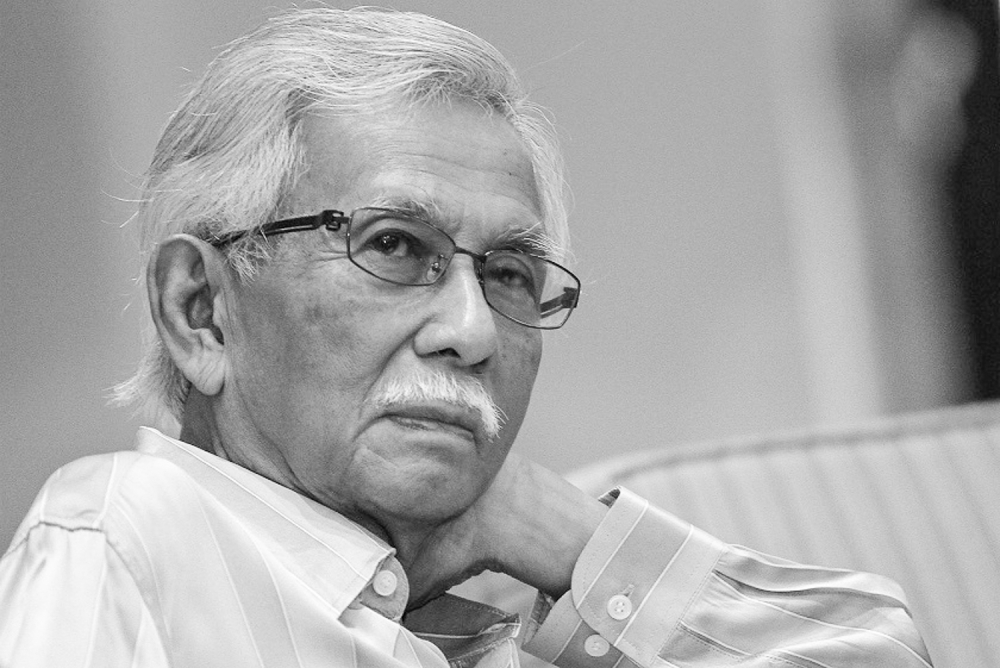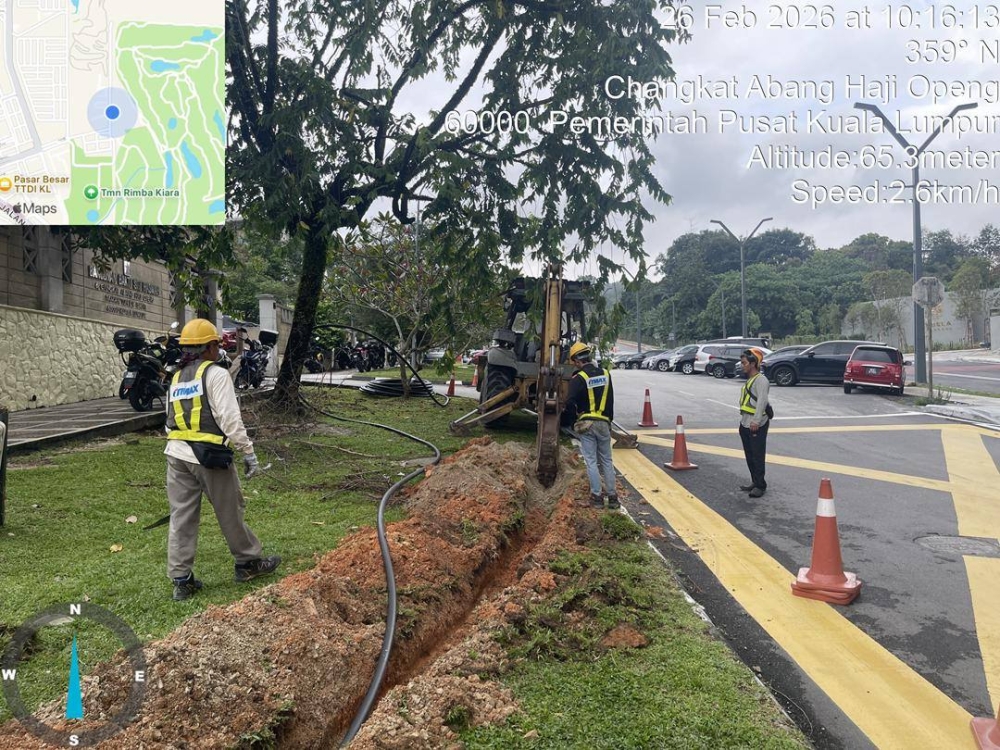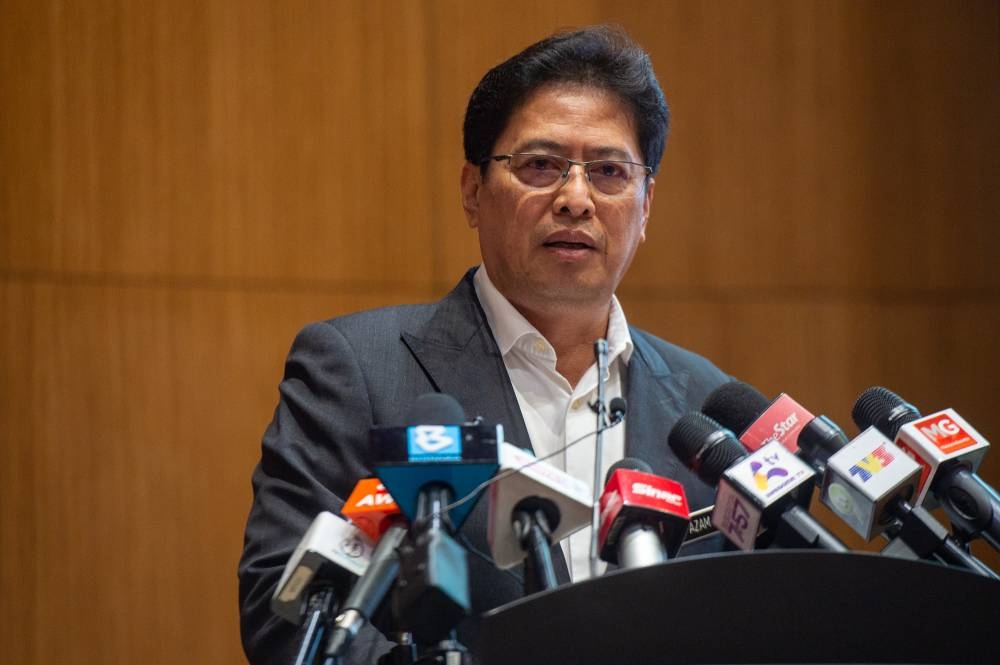OCT 2 — The Malaysian Anti-Corruption Commission (MACC) should be placed under Parliament for it to be a truly independent institution, DAP chairman Lim Guan Eng said. According to Lim, who is also Member of Parliament (MP) for Bagan, the MACC is currently not independent as it falls under the direct purview of the prime minister.
The Bagan MP was responding to MACC chief Azam Baki’s reported remarks that the MACC would not be as free to act as it is now if it had to seek permission or take instructions from lawmakers in Parliament first.
Azam said the MACC was already an independent institution. Yet, the MACC was not at liberty to disclose details of its investigation into Court of Appeal judge Nazlan Ghazali which has been completed. Azam said he could not disclose the instructions from the Attorney-General’s Chambers’ (AGC).
“We have completed our investigation. As I have said before, I am unable to announce what further instructions we received from the AGC,” he told reporters at a dialogue session in the MACC Cakna programme with Northern Zone Media.
An independent MACC should have full powers of investigation without having to take instructions from the AGC. It should also have the powers to prosecute, as advocated by many, including the Dewan Negara president Dr Rais Yatim.
For an independent MACC with investigation and prosecutorial powers, the "Roskill" model can be looked at. The first to use it is the United Kingdom’s (UK) Serious Fraud Office (SFO).
The "Roskill" model is named after Lord Roskill who was the chairman of a committee set up in the 1980s to look at ways to improve the investigation and prosecution of complex fraud cases.
Bribery and corruption are types of fraud, and the two very often go hand in hand. The report recommended that investigators and prosecutors be brought together under one roof to get the benefits of both professions throughout the life of the investigation and prosecution.
Using the Roskill model, an anti-corruption agency (ACA) like the MACC should have all the powers of investigation as well as powers to prosecute its cases – like the UK Serious Fraud Office SFO, established under the Criminal Justice Act 1987 and became operational in 1988. The Act creates the SFO whose core purpose is the investigation and prosecution of serious and complex fraud, bribery and corruption.
The Director of the SFO is empowered to investigate any suspected offence which appears to him on reasonable grounds to involve serious or complex fraud – Section 1(3).
The Director is also empowered to (a) institute and have the conduct of any criminal proceedings which appear to him to relate to such fraud; and (b) take over the conduct of any such proceedings at any stage – Section 1(4).
The SFO’s investigation and prosecution of cases is done by multi-disciplinary case teams of lawyers, investigators, forensic accountants, external counsel and other experts. This joint investigatory and prosecutorial case-team structure is now known as the "Roskill" model. (See SFO Annual Report and Accounts 2021-2022. Section 1(15) and Paragraph 3 of Schedule 1 to the Criminal Justice Act 1987 require the Annual Report to be to Parliament)
The SFO is unique in that its officers are integrated into the investigation at the outset. It both investigates and prosecutes its cases. While the SFO is superintended by the UK Attorney General (AG), there is a protocol which sets out the relationship between the AG and the SFO and other officers in the Law Officers’ Departments in the UK.
The protocol may be viewed here.
The UK’s SFO is now considered internationally as a model of best practice for the type of cases investigated and prosecuted. The SFO has developed strong technical competence relating to forensic accounting, electronic forensics, financial investigations and prosecutions.
The model has been adopted by New Zealand (NZ) whose Parliament passed the Serious Fraud Office Act in 1990 to establish an SFO of its own to be the lead law enforcement agency for investigating and prosecuting serious financial crime.
The NZ SFO was established as a response to the fallout from the 1987 share market collapse and the ensuing economic recession in New Zealand, which exposed fraud on a scale not previously seen in the country. The SFO also works to prevent financial crime and corruption in the public sector by providing guidance and raising awareness.
According to its official website, public sector corruption is a type of case which is a high priority for the SFO. The country takes pride that its public sector’s corruption-free reputation delivers to the economy a competitive advantage, through business confidence, as the real and perceived cost of doing business here is lower than for many of our trading partners and competitors. https://sfo.govt.nz/fraud-and-corruption/what-we-do/public-sector-fraud-and-corruption/
It is not surprising that the island country in the southwestern Pacific Ocean has always been ranked at or near the top of the Transparency International (TI) Corruption Perceptions Index (CPI), with its low levels of public sector corruption contributing much to the success. Last year, New Zealand was ranked joint first with Denmark and Finland with a score of 88/100 on the CPI.
So, it is curious that the MACC chief should say that it was not necessary for the MACC to be given the power to prosecute.
On its 55th anniversary, the MACC chief said that the Commission should emphasise on prevention, enforcement and education as the high-impact focuses in its fight against corruption over the next five years. Perhaps the MACC should also look at, and propose “penambahbaikan” to, the legal framework within which it operates.
As Azam himself said, many things had to be looked into for MACC to be feared and become a respected ACA. One of the many things is a successful model that the SFO in the UK and New Zealand offers by adopting the Roskill model that is respected internationally.
If New Zealand’s Bill to outlaw the sale of tobacco products to anyone born from 2009 onwards has inspired our own Generational End Game (GEG) bill – the Tobacco and Smoking Control Bill 2022 – why not its SFO?
Happy 55th Anniversary, MACC. Semoga bertambah baik, bertambah mutu.
*This is the personal opinion of the writer or organisation and does not necessarily represent the views of Malay Mail.




















